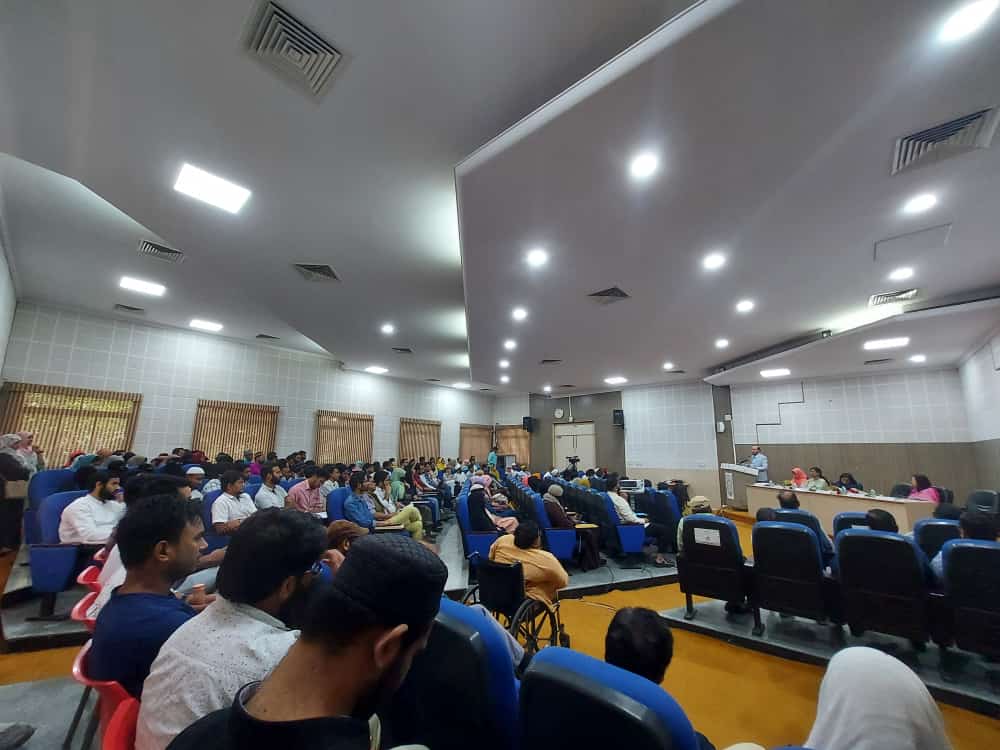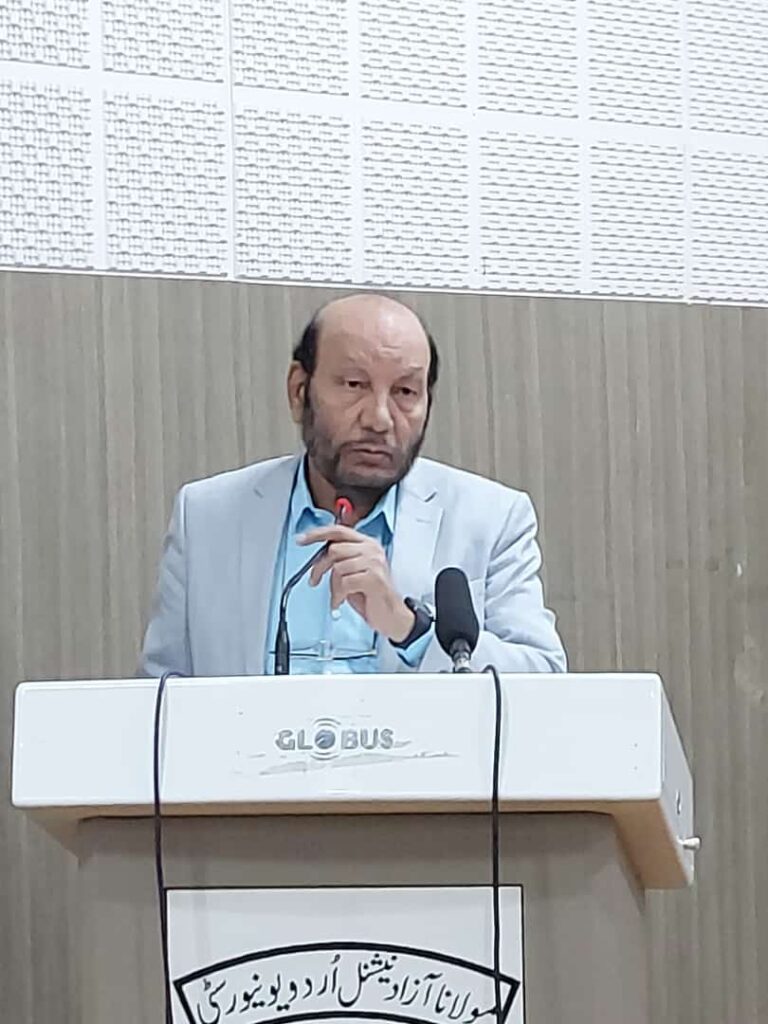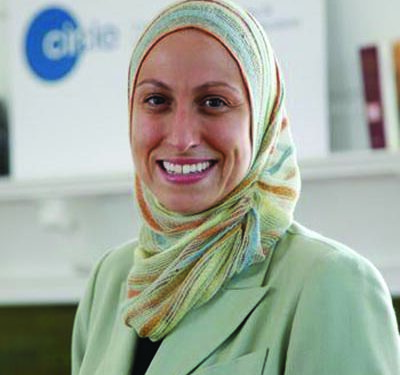NE NEWS SERVICE
NEW DELHI, NOV 3
US-based Islamic historian and scholar Dr. Celene Ibrahim has said radical nationalism is a threat to feminist global solidarity and many American and European politicians have carved out a political base that is mainly White and Christian by promoting national and ethnic nationalism.
Religion and Gender: Beliefs, Practices and Beyond | International Seminar | Inaugural Session | CSR | DWE, MANUU https://t.co/q6i6prOJJs
— IMC, MANUU (@imcmanuu) October 27, 2022
Dr. Celene Ibrahim made the comments in her keynote speech on `Religion and Gender: Beliefs, Practices, and Beyond’ at a webinar organized jointly by Maulana Azad National Urdu University (MANUU) & Centre for Study and Research(CSR), New Delhi, recently.
Dr. Celene Ibrahim is an internationally recognized religious studies specialist focusing on the formative period of Islamic history and the histories of inter-religious encounters. She is the author of the award-winning monograph Women and Gender In the Qur’an, published by Oxford University Press (2020). Her latest book, entitled Islam and Monotheim (2022), is in the Cambridge University Press Elements series. She is also the editor of the book One Nation, Indivisable: Seeking Liberty and Justice from the Pulpit to the Streets (Wipf & Stock Publishers, 2019).

Stating that “forces of nationalism” seek to destroy feminine solidarity, Dr. Ibrahim pointed out that “radical nationalism is a threat to feminist global solidarity.” She advised feminine activists from Muslim and non-Muslim backgrounds and researchers to go in for education and consensus-building work at the grassroots to thwart the designs of radical and ethnic nationalism.
Based on her experiences in the West, she said that “American and European politicians have ignited a political base that is largely White and Christian by appealing to stereotypes of Muslims as invaders who are frenzied, culturally unsophisticated, nonsensical actors with a propensity toward violence.”
“These nationalist politicians can then depict themselves as saviour–protectors poised to guard the territory, religion, and national identity. In this way, anti-Muslim bias becomes a lever of ethnic nationalism,” she clarified.
“It is, as these politicians recognize, much easier to garner votes if constituents believe that the enemy is culturally and religiously inferior and a legitimate existential threat. Likewise, it becomes easier to morally justify news of mass civilian casualties abroad if those bearing the brunt of the suffering are seen as not like “us” in fundamental ways. Their suffering then becomes, in this paradigm, an unfortunate but ultimately unavoidable result of `our’ need to protect `our values’ from being attacked. Unfortunately, in too many western polities, the political discourses that are hostile toward Islam and Muslims readily feed into everyday prejudices and implicit biases against individuals of a minority race, ethnicity, and religion; these minorities are only partially included in the conceived `we’ of the dominant national identity,” she remarked.
Stating that “false narratives, gross generalizations, and academically ungrounded analyses all serve to support notions that Muslims (or those appearing like Muslims) are to be regarded circumspectly,” Dr. Ibrahim said, “This belligerent, uninformed, ethnic nationalism is even more of a threat to transnational feminist organizing than any chauvinist uncle. Unfortunately, the two — ethnically based nationalism and chauvinism — often go together.”
The Quran, Prophetic traditions focus on justice, humanism
Against ethnic nationalism and chauvinism in Western societies, she said that “the Qur’an, Prophetic traditions, and Islamic epistemological heritage are, in fact, profoundly concerned with justice, fairness, goodness, human flourishing, moral beauty, and how to inculcate positive character traits in society’s members.”
Stating that there is much to commend about 1400 years of an Islamic intellectual legacy, the US-based Islamic scholar said that “at the same time, Muslim luminaries, as pious and well-intentioned human beings as they were, may in some areas have fallen short of their highest ideals. A male-dominated scholarly class has, on the whole, lacked a good vantage point to take robust enough account of the interests of women, who have remained a marginalized group overly vulnerable to the whims of men.”
She said religious conservatism comes in many flavours, and obviously, not all are driven by misogynist impulses. Still, we encounter the proposition that males are inherently superior to females by God-given design in the attitudes of certain contemporary Muslims and certain historic interpretive traditions.
“Some intellectuals of renown in the Islamic tradition have posited that men are superior over women because men are prophets, are the bulk of the learned (the ʿulamāʾ), have been the caliphs and imams, are uniquely tasked with upholding the collective defence, call the prayer, offer the Friday sermon, have greater powers of witness, have more shares in inheritance, receive double the blood money compensation as women, have certain privileges in marriage and divorce and pass their lineage by name,” she said.
She advised working with the parameters of Islamic jurisprudence as a long-term strategy for achieving women-friendly reform. But Dr. Ibrahim said that “pushing for a wholly secularized reform along the paradigms developed primarily by western or western-leaning actors can exacerbate the already fraught social tensions and lead to increasing polarization along secularist/Islamist lines.”
“The risks for violence to erupt in such a destabilized political environment are too great, and we know the costs that women and girls bear when basic security has been compromised,” she said.
She emphasized that the academic scholarship on gender and religion — in Islam and across traditions – is robust and increasing every year.
“I had to reinforce my bookshelf because the section for women and gender in religious traditions has grown so much in the past five years alone. I think we must re-formulate the category of “women” — we female homo sapiens who walk the earth in many places today have an evolved set of social responsibilities, and our rights have to develop as well. Gender is not stable; it is a socially constructed category, and we must keep constructing it,” she said.
The core objective of the seminar was to gather researchers and academicians to discuss and ponder upon the role of religions in shaping narratives about gender and how innovative discourses in the realm of gender may pave the way for real gender justice and may throw new light beyond classical narratives of gender and religion as a source of the oppressor.
Prof. Ajailu Niumai, the Centre for the Study of Social Exclusion and Inclusive Policy (CSSEIP) at the Hyderabad Central University, provided her insight from her long research experiences in Northeast India. One of the various practices of worship where women are discriminated against is impurity during the menstrual period, where women are not allowed to enter places of worship. After raising some issues, she provided the 3-pointer programme for the future. These were: debate and discussion on gender issues, fight against sexual harassment, women’s unity, sisterhood, and empowerment.
Prof. Arvinder Ansari spoke about different types of discrimination based on gender and religion and also offered solutions in the Indian context. She provided various illustrations in which prejudice is reflected in society. One such example she gave is of “Love jihad”, where the right-wing elements are projecting the weakness of Hindu women being feeble-minded to not understanding true of what is manipulation.

In his presidential address, MANUU vice-chancellor Prof. Syed Ainul Hassan pointed out the subtle gender prejudices in English, Urdu and Greek literature, movies, and arts. He noticed a sense of protest in most of the contemporary writings of women due to age-long oppression against women.
Prof. Mohammed Rizwan from CSR also spoke on the issue.
(With special arrangement from indiatomorrow.net)









